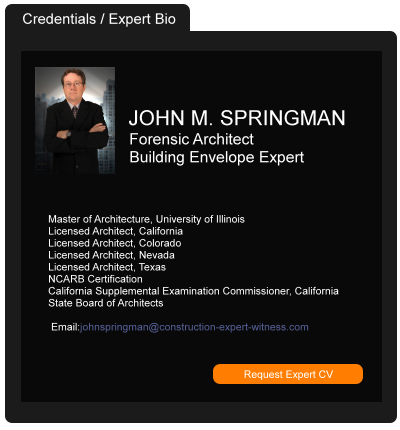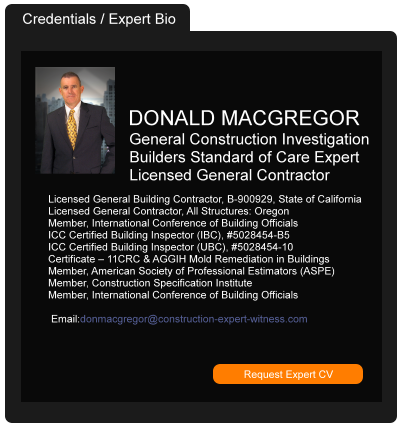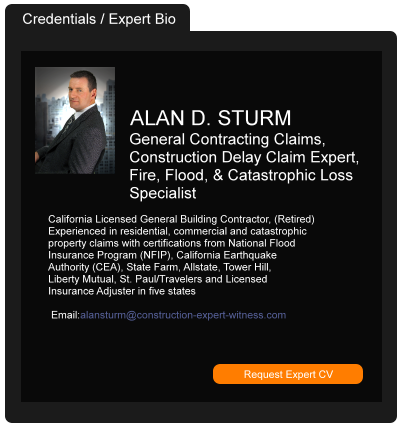NLRB Finalizes Rule for Construction Industry Unions to Obtain Majority Support Representational Status
September 23, 2024 —
Aaron C. Schlesinger - Peckar & Abramson, P.C.On July 26, 2024, the National Labor Relations Board (“NLRB”) issued its Fair Choice – Employee Voice Final Rule (“Final Rule”), which takes effect September 30, 2024. The Final Rule eases the process for unions in the construction industry to convert their status as collective bargaining representative of bargaining unit employees from Section 8(f) to 9(a) of the National Labor Relations Act (“Act”) simply by placing certain recognitional acceptance language in their collective bargaining agreements. As a result, construction industry employers should review their collective bargaining agreements prior to signing to determine if such language exists.
Section 9(a) Non-Construction Industry Employers
In most industries, not including construction, union recognitional status as collective bargaining representative of the employer’s employees is governed by Section 9(a) of the Act. In order for a Union to obtain recognitional status under Section 9(a), the union must either: (1) file a petition with the NLRB showing support of 30% of the proposed bargaining unit via employee executed authorization cards and win an election of 51% of the employees in the proposed bargaining unit who actually vote; or (2) by reaching an agreement with the employer that the union possesses employee executed authorization cards from 51% of the proposed bargaining unit, which has been confirmed by a neutral arbitrator pursuant to a card count. Once such status is achieved, the union and employer are required to meet and bargain towards reaching a collective bargaining agreement covering the terms and conditions of employment of the union represented employees. A Section 9(a) union cannot have its recognitional status revoked absent the loss of majority support of the employees it represents.
Read the court decisionRead the full story...Reprinted courtesy of
Aaron C. Schlesinger, Peckar & Abramson, P.C.Mr. Schlesinger may be contacted at
aschlesinger@pecklaw.com
Documenting Contract Changes in Construction
December 07, 2020 —
J.D. Holzheauser - Construction ExecutiveConstruction projects are almost inevitably subject to changes in the contract. A fundamental understanding of construction changes, how those changes are governed and what is necessary to ensure a complete change are of paramount importance to all parties involved in a construction project. This article is not a treatise on construction contract changes; rather, it provides advice on actions a contractor can take during construction that will help the contractor recover time or money when a contract’s schedule or scope of work needs to be changed.
Changes Defined
Changes to a construction project affect two broad spheres—timing and scope of work. Changes usually present themselves as either a change order or a change directive. Each may go by a different name depending on the contractual scheme in the project’s prime contract, but they essentially have the same characteristics.
The difference between a change order and a change directive is one of agreement. A change order (in the owner-prime contractor context) occurs when the contractor and the owner agree to a change in the timing or scope of work in the contract. Normally, the change order is a written agreement to change the contract and is executed by the contractor and owner.
Reprinted courtesy of
J.D. Holzheauser, Construction Executive, a publication of Associated Builders and Contractors. All rights reserved.
Mr. Holzheauser may be contacted at jdholzheauser@pecklaw.com
Read the court decisionRead the full story...Reprinted courtesy of
Insurance and Your Roof
November 13, 2013 —
CDJ STAFFThose seeking home insurance should look up. Bankrate points out that the type of roof a home has can affect how much it costs to insure it. “The roof is the first layer that wind, hail, wildfire and other hazards really begin to act on,” Tim Reinhold, the chief engineer at the Insurance Institute for Business and Home Safety, told the site.
For insurers, the most problematic roof type is probably wood shakes. “Some companies won’t even insure certain roof types, such as wood shakes, in high fire-risk areas,” said Robert Hunter, the director of insurance for the Consumer Federation of America.
Not that other roof types are problem-free. Metal roofs can corrode, particularly when two different metals touch. Shingles age more quickly than other roof types, becoming brittle, and they can blow off in high winds. Tile roofs are expensive, something insurers are guaranteed to factor into the insurance rates.
Read the court decisionRead the full story...Reprinted courtesy of
No Coverage Where Cracks in Basement Walls Do Not Amount to Sudden Collapse
January 10, 2018 —
Tred Eyerly - Insurance Law HawaiiIn another of a series of collapse cases arising out of Connecticut, the federal district court found there was no coverage for the homeowner's cracked basement wall caused by defective concrete. Liston-Smith v. CSAA Fire & Cas. Ins. Co., 2017 U.S. Dist. LEXIS 206211 (D. Conn. Dec. 15, 2017).
Read the court decisionRead the full story...Reprinted courtesy of
Tred Eyerly, Insurance Law HawaiiTred Eyerly may be contacted at
te@hawaiilawyer.com
Subrogation Waiver Unconscionable in Residential Fuel Delivery Contract
April 29, 2024 —
Ryan A. Bennett - The Subrogation StrategistIn a matter of first impression, the Superior Court of Connecticut (Superior Court), in American Commerce Ins., Co. v. Eastern Fuel Corp., No. CV-206109168-S, 2024 Conn. Super. LEXIS 380, held that a waiver of subrogation provision in a consumer fuel service/delivery contract violated public policy. The Superior Court overruled the motion for summary judgment filed by Eastern Fuel Corporation (Eastern) and determined that the clause was impermissible as the contract was entered into by two parties with unequal bargaining power.
American Commerce Insurance Company (American) provided property insurance to Arlene and James Hillas (the Insureds) for their home in Woodbridge, Connecticut. The Insureds hired Eastern to service their heating system on or around October 25, 2018. The service work at the property included inspecting the oil filters and flushing the fuel lines. On November 1, 2018, when the Insureds turned the heating system on for the first time that season, the two oil tanks on the property were allegedly full. After a series of deliveries, claims that the oil levels were lower than expected, discovering oil staining on the floor and Eastern’s replacement of the oil lines, Eastern delivered another 429 gallons. However, after the delivery, additional leaks were discovered relating to the oil line replacements. Ultimately, the Insureds submitted a claim to American and American paid in excess of $59,000 for the damage incurred.
Read the court decisionRead the full story...Reprinted courtesy of
Ryan A. Bennett, White and Williams LLPMr. Bennett may be contacted at
bennettr@whiteandwilliams.com
Insurer Must Produce Documents After Failing To Show They Are Confidential
January 19, 2017 —
Tred R. Eyerly – Insurance Law HawaiiThe Colorado Supreme Court ordered the insurer to produce documents after failing to demonstrate the documents contained were trade secrets. In Re Rumnock v. Anschutz, 2016 Colo. LEXIS 1228 (Colo. Dec. 5, 2016).
Stephen Rumnock was involved in an auto accident with an uninsured driver. Rumnock brought negligence claims against the driver and uninsured/underinsured motorist claims against his insurers, including American Family Insurance Company. American Family initially refused to pay benefits, but eventually paid him policy limits. Rumnock then amended his complaint to add bad faith and abuse of process claims against American Family.
Read the court decisionRead the full story...Reprinted courtesy of
Tred R. Eyerly, Insurance Law HawaiiMr. Eyerly may be contacted at
te@hawaiilawyer.com
Three-Year Delay Not “Prompt Notice,” But Insurer Not “Appreciably Prejudiced” Either, New Jersey Court Holds
November 04, 2019 —
Anthony L. Miscioscia and Timothy A. Carroll - White and Williams LLPIn Harleysville Preferred Insurance Company v. East Coast Painting & Maintenance, LLC, 2019 U.S. Dist. LEXIS 135295 (D.N.J. Aug. 12, 2019) (East Coast Painting), the U.S. District Court for the District of New Jersey held that an insurer, which received notice of a bodily injury accident three years after it happened, was not “appreciably prejudiced” by such late notice, even as the court acknowledged notice three years later did not satisfy the policy’s “prompt notice” condition. The court also held that the policy’s “Operational Exclusion,” which excluded coverage for bodily injury arising out of the operation of “cherry pickers and similar devices,” did not apply because the accident arose out of the use of a “scissor lift,” which is not a device similar to a cherry picker.
East Coast Painting arose out of a Queens, New York bridge-painting project, during which an employee of the insured, East Coast Painting and Maintenance LLC was injured while “standing on a scissor lift mounted to the back of a truck,” owned and operated by East Coast. The employee sued various project-related entities which, in turn, joined East Coast as a defendant. East Coast sought coverage under its business auto policy, and the insurer agreed to defend the insured under a reservation of rights. The insurer subsequently sought a declaration that it did not owe coverage based on, among other things, the policy’s “Operational Exclusion,” and the insured’s failure to satisfy the policy’s “prompt notice” condition. The insurer moved for summary judgment on both of those bases, but the court in East Coast Painting denied the motion.
As for the insurer’s “prompt notice” defense, the court in East Coast Painting concluded that, the insured’s notice to the insurer was not prompt because it did not receive notice until three years after the accident. But, the court added, the inquiry does not end there. “[T]his Court must determine whether [the insurer] was appreciably prejudiced by that delay.” Reviewing the facts, the court held that the insurer was not “appreciably prejudiced,” even though during the three-year delay the lift truck was “not properly maintained” or “in the same condition it was at the time of the Accident.” The court observed that the insurer had “ample other evidence with which it can defend itself,” such as experts who inspected the lift truck and opined about the cause of the accident.” [Emphasis added.] Further, “there are multiple contemporaneous accident reports,” “a list of the East Coast employees on site at the time,” “photographs of the lift truck and its location when [the employee] was injured,” and “depositions of [the employee] and others regarding the events at issue.” Thus, the court held, the insurer was not prejudiced and summary judgment was inappropriate.
Reprinted courtesy of
Anthony L. Miscioscia, White and Williams LLP and
Timothy A. Carroll, White and Williams LLP
Mr. Miscioscia may be contacted at misciosciaa@whiteandwilliams.com
Mr. Carroll may be contacted at carrollt@whiteandwilliams.com
Read the court decisionRead the full story...Reprinted courtesy of
Quick Note: Lis Pendens Bond When Lis Pendens Not Founded On Recorded Instrument Or Statute
May 20, 2019 —
David Adelstein - Florida Construction Legal UpdatesIf a lis pendens is recorded and the lis pendens is NOT founded on a duly recorded instrument (e.g., mortgage) or a statute (e.g., construction lien), a lis pendens bond should be recorded. The lis pendens bond should cover prospective damages associated with the wrongful / unjustified recording of a lis pendens that were suffered by the property owner. The reason being is that the lis pendens has an effect on the title to the property as long as the lis pendens is recorded. Damages could stem from a decline in the market value of the property, continued upkeep and maintenance of the property, and there may also be (and, really, should be) consideration for loss of investment return associated with the equity in that property.
Read the court decisionRead the full story...Reprinted courtesy of
David Adelstein, Kirwin Norris, P.A.Mr. Adelstein may be contacted at
dma@kirwinnorris.com


































































